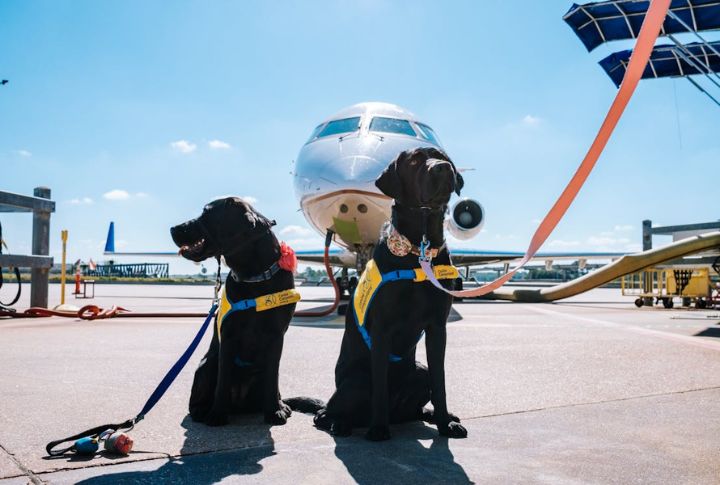10 Essential Facts Every Service Dog Owner Should Know

Therapy dogs? Emotional support animals? They’re wonderful, but they’re not service dogs under U.S. law. A faithful service dog is trained to perform specific tasks for someone with a disability. Here are ten essential things every service dog owner should remember to keep life running smoothly for you and your dependable partner.
Service Dogs Are Protected By Federal Law

According to the Americans with Disabilities Act, service dogs are legally allowed in public places, even ones that ban pets. Even restaurants or airplanes can’t turn them away. If your dog is task-trained and you have a qualifying disability, the law’s on your side, and it’s not up for debate.
You Can’t Be Asked For “Proof” Of Your Dog’s Legitimacy

Under ADA rules, staff at a business can only ask two questions: “Is this a service dog required for a disability?” and “What task is it trained to perform?” That’s it. No paperwork, no vests, no ID tags required. Anything beyond that? It’s a violation of your rights.
Training A Service Dog Takes More Than Just Good Manners

Service dogs go through extensive, specialized training for hundreds of hours. They don’t just behave well in public; they perform complex tasks to assist with specific needs. From medical alerts to mobility support, their work goes far beyond basic obedience or being well-behaved in Target.
You Can Train Your Own Service Dog

Yes, you can legally self-train a service dog. But it’s more than teaching sit and stay. It involves behavioral shaping, tailored disability support, and daily effort. Not all dogs have what it takes, and not all owners are prepared for the structure it demands.
Passing A Pet As A Service Dog Is Illegal In Many States

Passing off your pet as a service animal just to skip fees or enter no-dog zones? Besides being wildly unethical, it’s also illegal in many states. If discovered, fines range from hundreds to thousands of dollars. It undermines real service dogs and the people who rely on them every day.
Flying With A Service Dog Requires Advance Planning

Airlines do not allow emotional support animals for free anymore, but true service dogs are still protected. That said, you’ll often need to submit forms at least 48 hours in advance. Each airline’s policies vary, so double-check requirements before boarding to avoid last-minute gate drama.
Breed Doesn’t Matter, But Temperament Does

It’s not just about the breed on paper. While Labs and Goldens are well-known picks, success depends on a dog’s mindset. The best service dogs stay level-headed when things get noisy or stressful. That’s not something you can measure by looks alone.
Puppies Can’t Serve Until They’re Ready Mentally And Physically

Service work asks a lot from a dog, and maturity plays a significant role. While it’s smart to start socialization early, most serious training waits until about 18 months. Rushing that timeline often creates confusion and mistakes that are hard to undo later.
Grooming And Hygiene Standards Still Apply

Service dogs aren’t exempt from good hygiene. They should be well-groomed and free of fleas or strong odors. Businesses can legally ask you to leave if the dog’s condition poses a health risk, even if it’s task-trained and perfectly behaved otherwise.
Retired Service Dogs Deserve A Pampered Life

Most service dogs step away from duty between 8 and 10 years old after spending the bulk of their lives supporting others. What comes next? A much-deserved break filled with naps, cuddles, and slow walks. Some stay with their handler as pets, while others are adopted into loving homes, trained to care for their unique needs.





